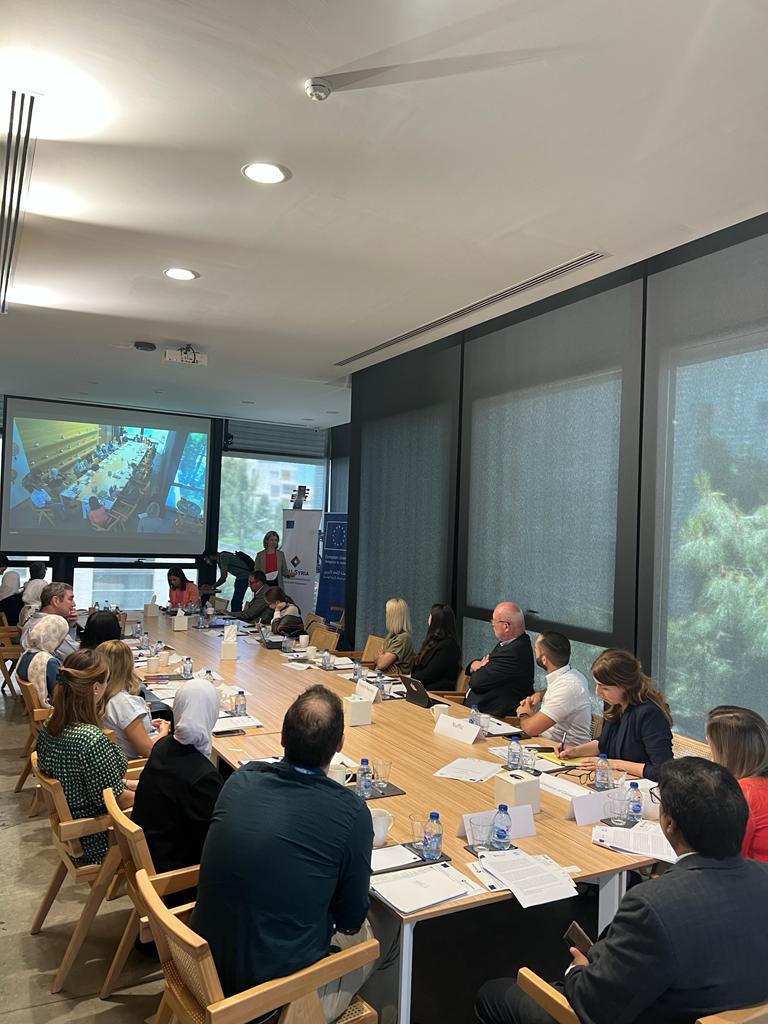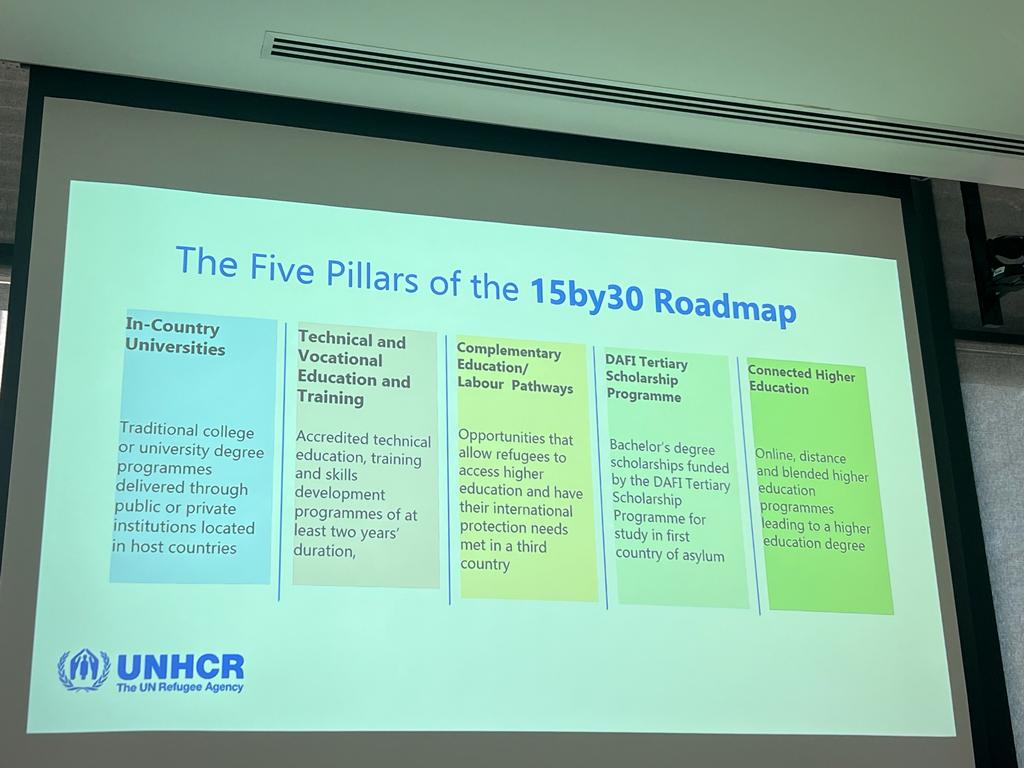
EDU-SYRIA & UNHCR Second Roundtable Discussion with Donors
A comprehensive second roundtable discussion was held by EDU-SYRIA and UNHCR on Monday, 5th of June 2023, focusing on the critical role of higher education and Technical and Vocational Education and Training (TVET) programs in empowering refugees and enhancing their self-reliance. The discussions, held with key stakeholders including; British Council, Goethe Institute, The World Bank, Abdulla Al Ghurair Foundation (AGF), The European Union, NUFFIC, The Friedrich Naumann Foundation, DAAD, UNICEF, Embassy of Canada, Australian Embassy, German Embassy and Yarmouk University, aimed to identify unmet needs, highlight opportunities, and foster collaboration to address the challenges faced by refugee students.
This second group discussion involving donors constitutes part of a series of periodic focus group discussions held with refugee students and the private sector, aimed at advancing the realization of the 15by30 Goal[1]. Various organizations shared their initiatives to support refugee education, including the European Union’s EDU-SYRIA Scholarship Program, the British Council’s focus on English language preparatory programs, and the World Bank’s commitment to TVET programs bridging the gap between refugees and the labor market. Stakeholders emphasized the need for comprehensive approaches to address the multifaceted challenges faced by refugees.
Stakeholders stressed the importance of aligning education projects with governmental policies, advocating for a balanced approach that supports both higher education and TVET programs. The discussions emphasized the collaborative efforts needed to address barriers faced by refugees in accessing education and employment opportunities. Furthermore, Recognition was given to Jordanian universities, such as Yarmouk University, for promoting flexible learning models. These models, including micro-degrees, online, and distance learning options, accommodate the diverse circumstances of refugee students, allowing them to balance education with other responsibilities.
Participants emphasized the strategic direction of advocacy efforts towards various stakeholders. Organizations like NUFFIC highlighted the importance of advocating for practical and sustainable solutions while the Goethe Institute recommended awareness sessions to inform refugees about available pre-integration services and opportunities for migration. Efforts by the Australian Embassy and the Embassy of Canada to provide scholarship programs for refugees were highlighted, with an emphasis on the importance of language proficiency. Coordination of awareness sessions was recommended to ensure refugees are well-informed about eligibility criteria and application processes.
The roundtable concluded by urging participants to explore support within their institutions for identified unmet needs and suggesting opportunities for engagement. The collaborative efforts of stakeholders were deemed crucial to addressing challenges faced by refugee students, creating sustainable pathways for their education, and fostering future success.

[1] 15by30 Roadmap – Coming together to achieve 15% enrolment by 2030 (https://www.unhcr.org/15by30-roadmap.)
